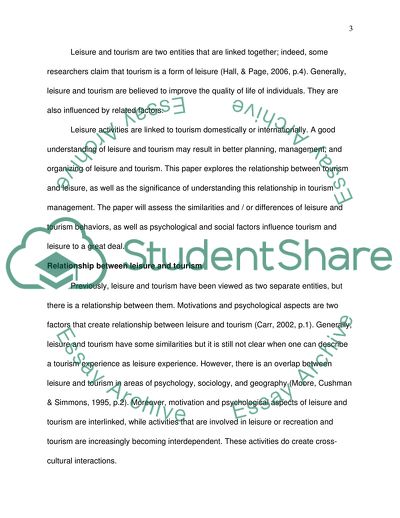Cite this document
(Tourism, Leisure and Society Essay Example | Topics and Well Written Essays - 2250 words, n.d.)
Tourism, Leisure and Society Essay Example | Topics and Well Written Essays - 2250 words. https://studentshare.org/tourism/1746775-tourism-leisure-and-society
Tourism, Leisure and Society Essay Example | Topics and Well Written Essays - 2250 words. https://studentshare.org/tourism/1746775-tourism-leisure-and-society
(Tourism, Leisure and Society Essay Example | Topics and Well Written Essays - 2250 Words)
Tourism, Leisure and Society Essay Example | Topics and Well Written Essays - 2250 Words. https://studentshare.org/tourism/1746775-tourism-leisure-and-society.
Tourism, Leisure and Society Essay Example | Topics and Well Written Essays - 2250 Words. https://studentshare.org/tourism/1746775-tourism-leisure-and-society.
“Tourism, Leisure and Society Essay Example | Topics and Well Written Essays - 2250 Words”. https://studentshare.org/tourism/1746775-tourism-leisure-and-society.


